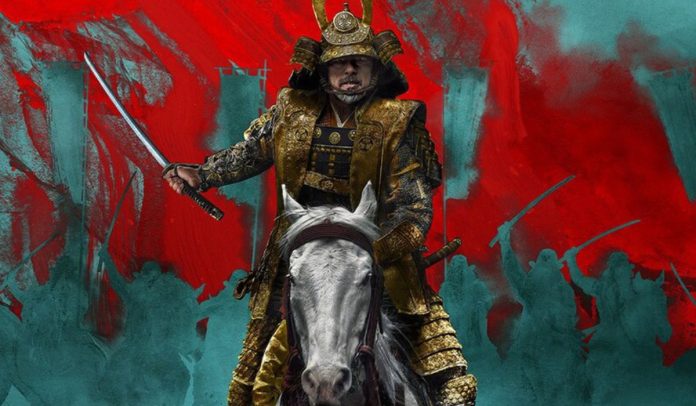As the curtain falls on FX’s critically acclaimed series ‘Shogun,’ fans are left with a bittersweet feeling – the satisfaction of witnessing a masterful adaptation of James Clavell’s iconic novel, tempered by the realization that this particular story has reached its definitive conclusion. With the ten-episode series wrapping up, the question on everyone’s mind is: what’s next for the world of ‘Shogun’?
While the prospect of a direct continuation of the series seems unlikely, the door remains open for further exploration of Clavell’s literary universe. The late author’s ‘Asian Saga,’ a sweeping collection of six novels spanning various eras and locations across Asia, offers a wealth of untapped storytelling potential.
For those unfamiliar with Clavell’s work, ‘Shogun’ is not the first installment in a linear series but rather a standalone entry in the ‘Asian Saga.’ Published in 1975, the novel chronicles the adventures of an English sailor shipwrecked in 17th-century Japan, where he becomes embroiled in the complex political and cultural landscape of the Shogunate.
The series, which has been a critical and commercial success for FX, has brought this captivating tale to life with stunning visuals, impressive performances (Anna Sawai’s portrayal of Lady Mariko is already garnering Emmy buzz), and a deep respect for the source material. However, as the finale draws to a close, it becomes evident that this particular chapter has been told in its entirety, leaving little room for a direct sequel.
While the idea of a ‘season 2’ of ‘Shogun’ is tantalizing, the creators have made it clear that any future adaptations would likely draw from Clavell’s other novels within the ‘Asian Saga.’ This decision is not without its challenges, as each book in the series is a self-contained narrative, set in different time periods and locations across Asia.
One potential candidate for adaptation is ‘Tai-Pan,’ the second book in the ‘Asian Saga’ chronologically. Set in 1841 Hong Kong, ‘Tai-Pan’ follows the events in the aftermath of the Opium War and focuses primarily on white characters, a departure from the Japanese-centric narrative of ‘Shogun.’
However, the prospect of adapting ‘Tai-Pan’ or any other novel from the ‘Asian Saga’ would likely necessitate an entirely new creative team, as the ‘Shogun’ team has spent nearly a decade bringing their vision to life. The commitment and passion required to craft such an ambitious series make it unlikely that the same group would seamlessly transition to another chapter in the saga.
This reality underscores the challenges inherent in adapting an anthology series like the ‘Asian Saga.’ While the source material offers a rich tapestry of stories and settings, each adaptation would demand a fresh approach, a new cast, and a team willing to immerse themselves in the intricacies of a different era and culture.
Nonetheless, the success of ‘Shogun’ has undoubtedly piqued interest in Clavell’s work, and it would not be surprising to see another production company or streaming platform attempt to bring ‘Tai-Pan’ or another ‘Asian Saga’ novel to the screen. The allure of capturing the magic of ‘Shogun’ while exploring uncharted territories within Clavell’s literary universe could prove irresistible for filmmakers and audiences alike.
Yet, even as the possibility of future adaptations looms, it is essential to recognize the immense achievement that ‘Shogun’ represents. The series has not only captivated audiences with its gripping narrative and stunning visuals but has also served as a powerful cultural bridge, offering a rare and nuanced glimpse into the rich tapestry of 17th-century Japan.
Through its meticulous attention to detail and commitment to authenticity, ‘Shogun’ has challenged Western perceptions and stereotypes, inviting viewers to immerse themselves in a world that is both distant and deeply human. The series has demonstrated the power of storytelling to transcend cultural boundaries, fostering understanding and appreciation for the complexities of a society that, for many, may have seemed impenetrable.
Moreover, ‘Shogun’ has proven that there is a hungry audience for inclusive and diverse narratives, ones that challenge the status quo and offer a fresh perspective on history and culture. The series’ success has paved the way for future productions to take similar risks, exploring stories and settings that have long been overlooked or misrepresented in mainstream media.
As the industry continues to evolve and embrace a more global outlook, the ‘Asian Saga’ stands as a treasure trove of untapped potential, offering a wealth of stories that span continents, cultures, and centuries. Whether it be ‘Tai-Pan,’ ‘King Rat,’ ‘Noble House,’ or any of Clavell’s other novels, each tale promises to transport audiences to a world that is both familiar and foreign, challenging their assumptions and expanding their horizons.
While the future of ‘Shogun’ as a direct continuation may be uncertain, the series has undoubtedly left an indelible mark on the entertainment landscape. It has demonstrated the power of ambitious storytelling, the importance of diverse representation, and the enduring appeal of narratives that transcend borders and defy expectations.
As the curtain falls on this remarkable adaptation, one thing is certain: the legacy of ‘Shogun’ will endure, inspiring future generations of storytellers to push boundaries, embrace complexity, and share the rich tapestry of human experience with audiences around the world.

